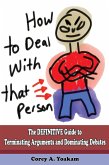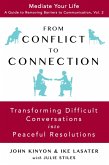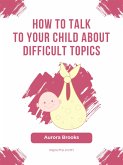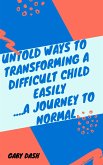While working with parents and children for nearly half a century, it has become increasingly evident that the Adlerian child psychology methods as outlined in this book are effective when applied to family conflicts. They have been tested by numerous teachers, counselors, and others in many locations over many years. Many parents have discovered for themselves that these strategies engage their children and win their cooperation. Still, parents often do not know why children act as they do or why they succeed or fail.
The information and recommendations in this book are based on a philosophy of life and concept of human nature and behavior first presented by Alfred Adler, Rudolph Dreikurs, and others. The parenting methods they recommended have become increasingly accepted and used during recent decades in Europe and North America. They do not suggest either permissiveness or punishment but instead methods for use by parents, which emphasize wise guidance of children without either overcontrolling them or stifling their creative spirit.
With more secure knowledge of what to do, parents can improve their parenting using techniques and strategies that work. Parents are too often faced with child-raising challenges for which they are not prepared. Just as the child needs training, so do parents.
Ideas presented in the pages of this book suggest new ways to respond to a child's provocations that can lead to new attitudes and parental behaviors. These can and often do lead, in turn, to new and productive approaches and methods that allow more harmonious relationships to develop. But why do children act as they do? And why do these methods enable parents to succeed?
The information included in this volume was designed to answer these and related questions as well as to present a set of principles in a form readily usable by parents in the home, teachers in the classroom, and other adults in other circumstances and situations.
Hinweis: Dieser Artikel kann nur an eine deutsche Lieferadresse ausgeliefert werden.
The information and recommendations in this book are based on a philosophy of life and concept of human nature and behavior first presented by Alfred Adler, Rudolph Dreikurs, and others. The parenting methods they recommended have become increasingly accepted and used during recent decades in Europe and North America. They do not suggest either permissiveness or punishment but instead methods for use by parents, which emphasize wise guidance of children without either overcontrolling them or stifling their creative spirit.
With more secure knowledge of what to do, parents can improve their parenting using techniques and strategies that work. Parents are too often faced with child-raising challenges for which they are not prepared. Just as the child needs training, so do parents.
Ideas presented in the pages of this book suggest new ways to respond to a child's provocations that can lead to new attitudes and parental behaviors. These can and often do lead, in turn, to new and productive approaches and methods that allow more harmonious relationships to develop. But why do children act as they do? And why do these methods enable parents to succeed?
The information included in this volume was designed to answer these and related questions as well as to present a set of principles in a form readily usable by parents in the home, teachers in the classroom, and other adults in other circumstances and situations.
Dieser Download kann aus rechtlichen Gründen nur mit Rechnungsadresse in A, D ausgeliefert werden.
Hinweis: Dieser Artikel kann nur an eine deutsche Lieferadresse ausgeliefert werden.









